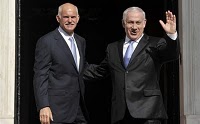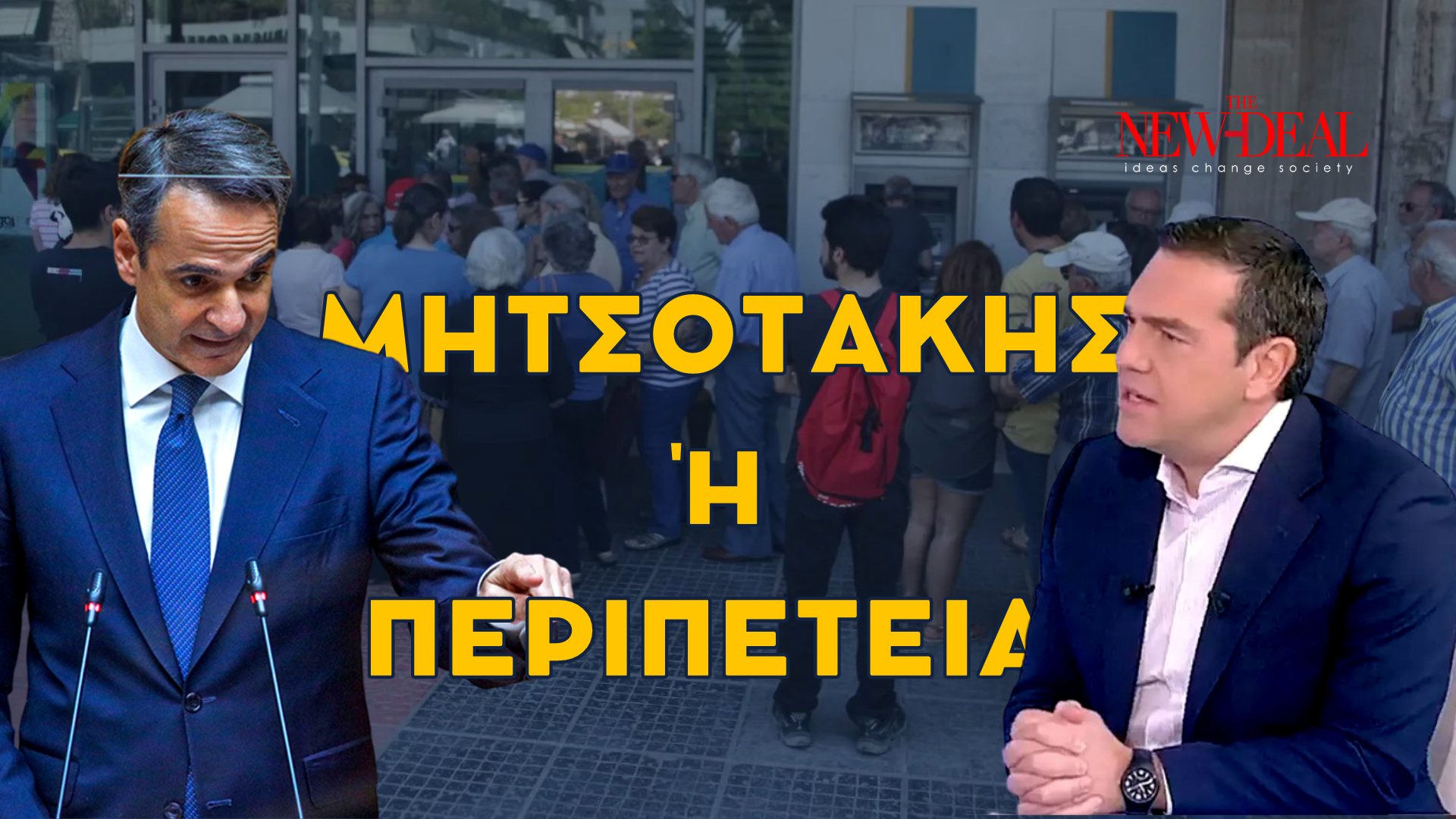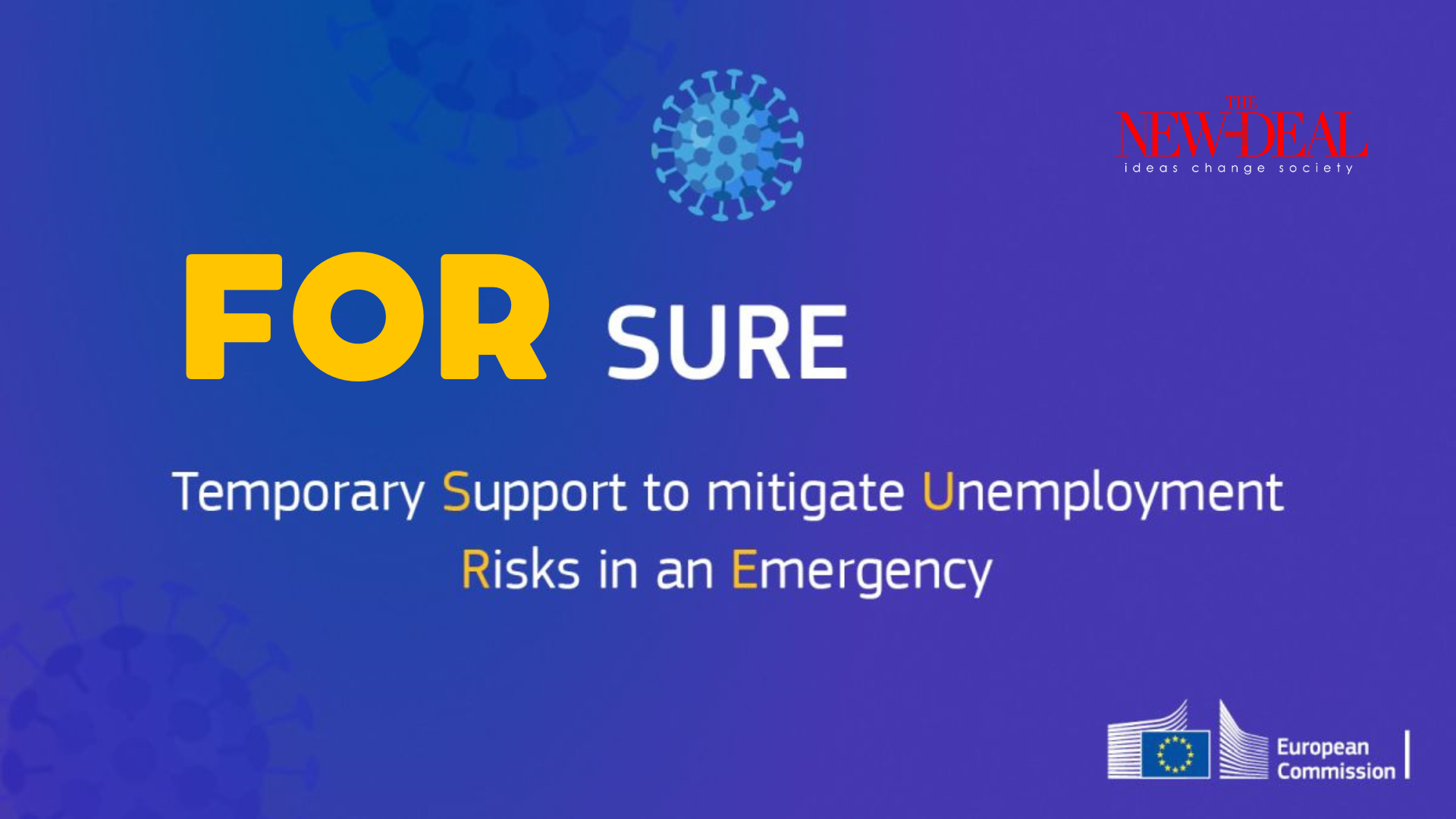Over the past year, the Cypriot government has been implementing a dramatic pro-Israeli shift in its foreign policy. Not long ago, such a pro-Israeli orientation would have been inconceivable, given that Cypriot foreign policy and public opinion have traditionally favored the Arab parties to the Arab-Israeli conflict.
Interestingly, the newly elected President of the Republic of Cyprus, Nikos Anastassiades, does not face any domestic opposition to this change. In the wake of Cyprus’s economic crisis, which is radically affecting the Cypriot banking system and domestic economy, and also against the background of the sharp deterioration in Turkish-Israeli relations following the 2010 Mavi Marmara incident, Anastassiades and his political opponents agreed that creating strong ties with Israel on common oil and natural gas exploitation projects in the South East Mediterranean was the best political course.
A clear indication of Cyprus’ pro-Israeli regional policy occurred on February 11, 2013, when the Cypriot government signed an agreement according to which the Israeli companies Avner Oil & Gas and Delek Drilling were granted 30% of the US-based Noble Energy Oil Company’s exploration and exploitation rights on Cyprus’s EEZ (exclusive economic zone)[1] Block 12, which borders Israel’s EEZ Leviathan Block in the Eastern Mediterranean Sea. The Cypriot Minister of Commerce Neoclis Silikiotis emphasized the political dimensions of this agreement,[2] noting the importance of regional political cooperation with Israel.
Although geographically Cyprus is an eastern Mediterranean-Near Eastern state, its foreign policy agenda has been primarily Western-oriented. This orientation was not always the result of free political choice. According to the 1959 London-Zurich Agreements, which resulted in the 1960 Cypriot Constitution, the Republic of Cyprus is one of the very few states for which the constitution clearly designates its foreign policy priorities, laying down the “Do’s and Don’ts” for any future Cypriot government. These priorities were established in order to serve, or at least not to oppose, the interests of the three guaranteeing countries – Greece, Turkey and the United Kingdom – as well as to preserve the political unity of the newly established bi-communal hybrid ‘Greco-Turkish’ Cypriot state.[3]
In 1974, following inter-communal disputes and a Greek-backed military coup aiming to unite Cyprus with mainland Greece, Turkey invaded Cyprus. Since then, Turkish troops have occupied the northern part of the island.[4] In 1983, Ankara decided to form a separate Turkish-Cypriot entity, the “Turkish Republic of Northern Cyprus,” which is not recognized by any country other than Turkey; the international community recognizes the Republic of Cyprus as the only legal state on the island, with Nicosia as its capital. Despite numerous UN-backed diplomatic efforts, periodic inter-communal negotiations have failed to produce a resolution to the stalemate.[5]
The first President-elect of the Republic of Cyprus, Archbishop Makarios III, fashioned a distinct Cypriot foreign policy, differentiating himself from Athens, Ankara and London as well as from other Cypriot leaders, whose nationalist tendencies aimed towards either the unification of Cyprus with Greece (Enosis) or the island’s partition and annexation of the northern part of the island to Turkey (Taksim). As a result of Makarios’ priorities, Cyprus became an active member of the anti-western Non-Aligned Movement and strengthened its political ties with Nasserist Egypt by adopting a vocal pro-Palestinian stance, with the belief that Makarios would gain the support of numerous Afro-Asian and Arab states’ votes at the UN in order to change the intra-Cypriot bi-communal constitutional status and to strengthen the political role of Cyprus’s central administration.
At the same time, Cyprus was the only country in the Near and Middle East region that maintained full and formal diplomatic relations with Israel, with which it cultivated fruitful economic and commercial ties, and from which it obtained technical support from various Israeli institutions. Due to its common interests and affinities, all Cypriot governments successfully resisted Arab pressures to cut diplomatic ties with Israel, despite the Cypriot media’s and the public’s pro-Palestinian stance, while Israeli private investments boosted the local tourism industry and commerce.
After the Turkish invasion in 1974, Cypriot foreign policy was directed at achieving the reunification of the island, the return of the Greek-Cypriot refugees to their properties in the Turkish-occupied north and the withdrawal of Turkish troops. On the regional scene, Cypriot foreign policy continued to follow pro-Arab tendencies, still hoping to obtain broad Arab support in the UN and other international organizations.
During the 1980s, Turkey and Israel began cultivating a strong military alliance. Yet despite the considerable improvement in Turkish-Israeli relations and the strong pro-Arab Cypriot rhetoric, Israeli diplomats adopted the international community’s position towards the Cyprus issue and chose not to recognize the administration of the Turkish-occupied northern part of the island as a legal state entity. Such a measure would have destroyed Israel’s delicate diplomatic relations with the Republic of Cyprus as well as its strong economic ties with its only non-Arab neighboring state.
Since 2002 Ankara has gradually adopted a new foreign policy doctrine based on the ruling AKP’s[6] perception of the country’s historic leadership role in the Middle East, which aims to expand Turkey’s political and economic influence in the Arab world. At the same time, strong anti-Israel voices were multiplying amongst Turkish decision-makers.
In June 2010, Turkey used the Mavi Marmara flotilla incident to clarify its new pro-Arab regional policy objectives. It was surely not a coincidence that according to the Mavi Marmara’s itinerary, the port of Famagusta in Turkish-occupied northern Cyprus was the last stop before the port of Gaza. In this way, Ankara aimed to connect the Israeli embargo on the port of Gaza, which exclusively serves a Palestinian population, with the international embargo on the port of Famagusta,[7] which solely serves the Turkish-Cypriot population and the Turkish settlers, in order to gain Arab and Muslim support for Ankara’s interests in Cyprus.
Turkey’s use of the port of Famagusta has always been a thorny issue for the Republic of Cyprus. As a result, Cypriot authorities denied the Mavi Marmara flotilla entrance into their territorial waters. This decision was the first sign of Nicosia’s new regional foreign policy. It was Turkey’s new Middle East doctrine that prompted Nicosia to re-evaluate its position in the region: shortly after the incident, Israeli-Cypriot cooperation on oil and natural gas exploitation was announced,[8] followed by substantial steps promoting further political and diplomatic cooperation. An unprecedented military agreement was signed between the two countries on February 16, 2012, according to which Israeli military planes and vessels can use Cypriot military bases in order to protect common natural gas projects within the Cypriot and the Israeli EEZs.[9]
While diplomatic tensions between Turkey and Israel remained over the Mavi Marmara incident, the Republic of Cyprus was hoping that Israel would favor Greek-Cypriot priorities regarding the island’s reunification. Because Turkey disputes Cyprus’s maritime borders,[10] Cypriot natural resources exploitation projects add even more disputed areas between Cyprus and Turkey, the most important of which is on Block 12 within the Cypriot EEZ, where Israel and Cyprus are already collaborating.
The recent official Israeli apology to Ankara regarding the Mavi Marmara incident and the US-led efforts to achieve a Turkish-Israeli rapprochement are being closely watched in Nicosia, in order to determine how they will affect its budding partnership with Israel.
Israel, on the other hand, cannot disregard the fact that while its partnership with the Republic of Cyprus within the Cypriot EEZ is important for its economy in the decades to come,[11] Turkey’s geostrategic role is extremely important for its national security. Repairing and renewing ties with its geostrategic ally (Turkey) while further developing its energy partnership with Cyprus and seeking ways to develop broader regional cooperation in the natural gas sector will surely challenge Israeli diplomatic skills in the months and years ahead. In that regard, achieving the long-elusive solution to the Cyprus issue would be a boon to regional stability. In its absence, Cyprus’s offshore energy reserves, rather than guaranteeing a prosperous future for all parties involved, are likely to provide a new focus of tensions in the always volatile Middle East.
Gabriel Haritos is a doctoral candidate in the Department of International and European Studies at the University of Macedonia in Thessaloniki, Greece and a visiting scholar at the Moshe Dayan Center for Middle Eastern and African Studies at Tel Aviv University.
[1] As defined by the United Nations Convention of the Law of the Sea, the EEZ (Exclusive Economic Zone) is a sea zone over which a state has special rights of exploration and use of resources. In February 2003 and January 2007, Cyprus signed an Agreement on the Delimitation of the Exclusive Economic Zone with Egypt and Lebanon, respectively. The Agreement is based on the internationally accepted principle of the median line and is in accordance with the UN Convention on the Law of the Sea. In December 2010, the Agreement on the Delimitation of the EEZ between Cyprus and Israel was signed. As part of their wider cooperation, Cyprus and Israel have agreed to start their gas explorations with one common US oil company, the Noble Energy Inc. (www.nobleenergyinc.com.)
[2] http://www.cyprus-mail.com/avner-oil-gas/new-era-strategic-partnership/20130212
[3]According to the 1960 census, the Cypriot population was 77% Greek-Cypriot and 18.3% Turkish-Cypriot; the remaining 5% was composed of Maronites, Catholics, Armenians and Britons. Cyprus was under British Administration from 1878 until it gained independence in 1960. According to the 1960 Cypriot Constitution, the president is to be a Greek-Cypriot and the vice-President a Turkish-Cypriot, a provision which created political instability that resulted in numerous inter-communal and intra-communal disputes between 1963 and 1974.
[4]As a result of the Turkish occupation in July 1974, Greek-Cypriots were displaced from the north to the south, and Turkish-Cypriots were displaced from the south to the north as Turkish settlers from Anatolia came to populate the northern part of the island.
[5] A UN proposal for resolving the Cyprus issue, broadly known as the “Kofi Annan Plan,” was rejected by the vast majority of Greek Cypriots in a bi-communal referendum held in 2004.
[6] The Justice and Development Party, headed by current Prime Minister Recep Tayyip Erdoğan.
[7] Famagusta is the biggest port of the northern part of Cyprus. After the Turkish invasion in 1974, the international community imposed an embargo upon the Turkish administration in the occupied territory of the island. The Republic of Cyprus characterizes as illegal the ports of Famagusta and Kyrenia as well as the airport of Tymbou (in Turkish : Ercan) in the occupied part of Nicosia.
[8] Cyprus and Israel have declared Exclusive Economic Zones in the Southeast Mediterranean. The Cypriot EEZ’s Block 12 borders the Leviathan Block of the Israeli EEZ.
[9] http://www.mako.co.il/news-military/israel/Article-6c4f15109268531018.htm
[10] “Ankara threatens naval action over Cyprus’ Block 12 drill,” PanArmenian.net, September 6, 2011, http://www.panarmenian.net/eng/news/77401/Ankara_threatens_naval_action_over_Cyprus_Block_12_drill.
[11] Yoram Gabizon, “Tamar Field’s gas will save Israeli industry a bundle in energy costs,” Ha’Aretz, April 4, 2013. http://www.haaretz.com/business/tamar-field-s-gas-will-save-israeli-industry-a-bundle-in-energy-costs.premium-1.513283
The Moshe Dayan Center publishes TEL AVIV NOTES, an analytical update on current affairs in the Middle East, on or about the 10th and 26th of every month, as well as occasional Special Editions.
TEL AVIV NOTES is published with the support of the V. Sorell Foundation.
To republish an article in its entirety or as a derivative work, you must attribute it to the author and the Moshe Dayan Center at Tel Aviv University, and include a reference and hyperlink to the original article on the Moshe Dayan Center’s website http://www.dayan.org.
Previous editions of TEL AVIV NOTES can be accessed at http://www.dayan.org/tel-aviv-notes.
You are subscribed to the Moshe Dayan Center Electronic Mailing List. Should you wish to unsubscribe, please send an email to [email protected], and with the message “unsubscribe dayan-center.”



























